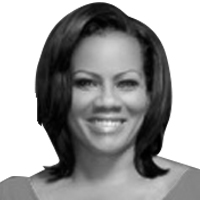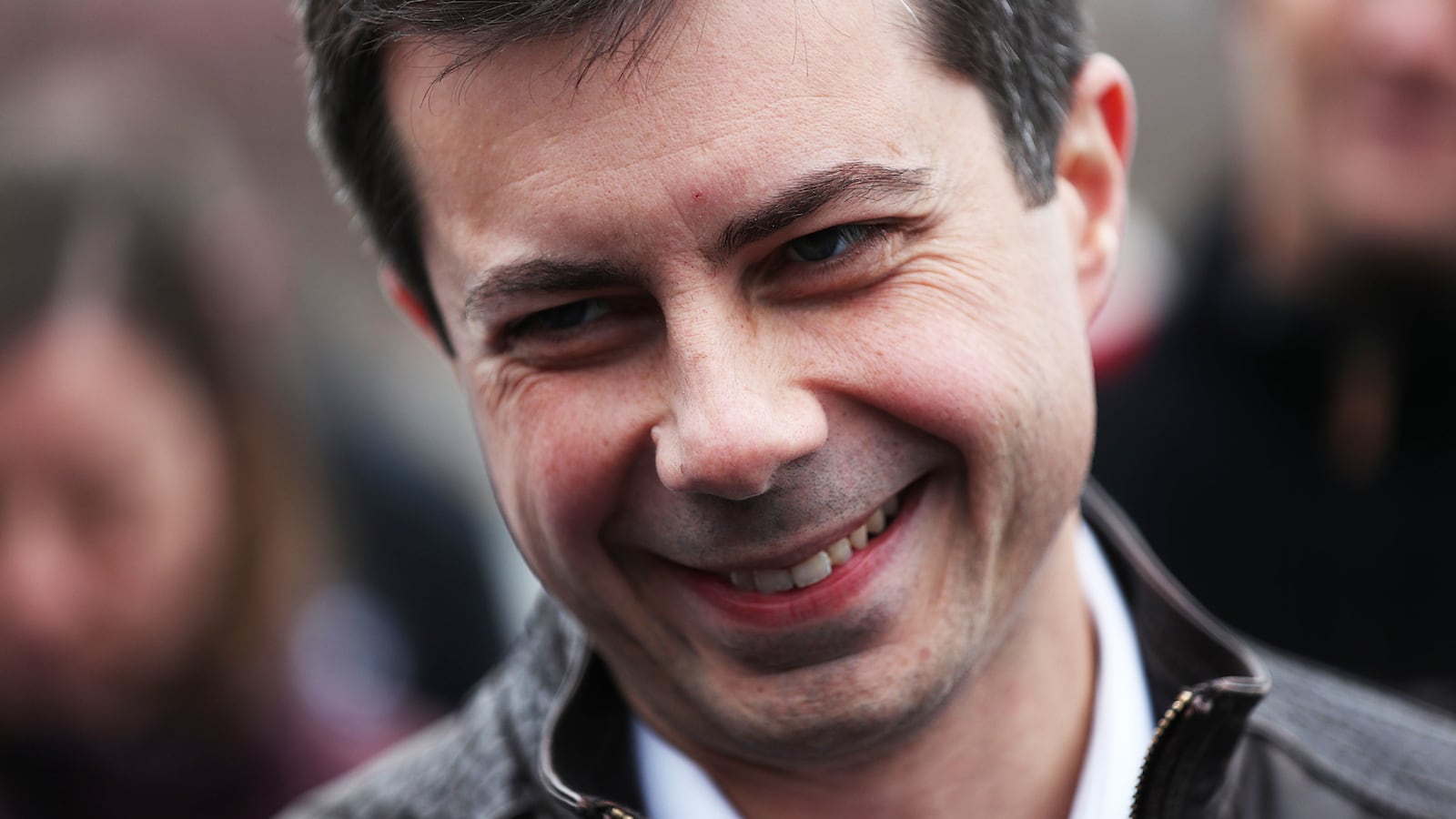When South Bend Mayor Pete Buttigieg first entered the race, to be honest, I was mesmerized. He struck me as young, but brilliant. He spoke with compassion for the least of these and, led by his faith, he invoked the kind of Christianity long missing from the national discourse—one that is inclusive, wrapped in love and equality, and that believes the test of us brings out the best in us.
That he is gay and married was of no consequence to me, although I knew it would be for some. I wanted to believe that he would be the sort of candidate who challenged us to higher ground, but met us at our point of need. He has spent nearly every day since proving me wrong.
I had continued to give him the benefit of the doubt until learning of his past attempt to build a coalition with Tea Party activists—a movement fueled by white supremacy, bigotry and xenophobia in the midst of the Obama administration—as he campaigned for statewide office in Indiana, rather than creating alliances with people of color. As the Tea Party pledged to “take America back,” setting the stage for Trump’s MAGA campaign, Buttigieg found them worthy partners.
Wednesday night, he will have to answer for that when the Democratic field of candidates convene in my city, Atlanta, to debate the issues of the day. They will assemble at Tyler Perry Studios, which is fitting when you consider that sprawling facility was built by a black man on land once commanded by Confederate forces. If there is a capital of black America, it is Atlanta.
As the campaign buses roll into the cradle of the civil rights movement and the candidates glad-hand supporters and polish their opening statements, I wonder now: What would Martin say?
This is, after all, the birth home of Dr. King, where his children reside and where he himself lay in a crypt on a site erected in his memory. It is where he received both death threats and accolades, where he and young men named Andrew Young, Ralph David Abernathy, C.T. Vivian, John Lewis and others sat down over cornbread and turnips and sweet tea at Pascal’s Restaurant to plot their course. These men, younger then than Mayor Pete is now, did not cower in the face of racial animus and violence. They were not turned back by a bat-wielding governor, firehoses and dogs, or church bombings. Martin saw and inspired us to an America better than the one she saw herself.
I expect that he would have embraced Buttigieg with the same vigor he embraced Bayard Rustin, the black and gay activist who orchestrated the March on Washington. But, if Brother Martin were here, he might well have some questions for the young mayor.
King might press him to explain why black voters should trust and support him given his record of siding with racist South Bend police officers and against their African-American chief. King might want him to explain his willingness to gentrify predominantly black neighborhoods in the name of “beautification,” or why his campaign promoted a fraudulent endorsement list of African-American leaders in South Carolina. And King might demand an answer for the lack of diversity in his city leadership and on his campaign.
King might well tell Buttigieg, as I would, that social change is intentional. He would tell him that the moral arc of the universe bends towards righteousness but that, without work, faith is dead. The silence of our friends, King understood, is more murderous to the cause of equality than the roar of our enemies.
I do not believe Mayor Pete to be an enemy of African-Americans—far from it. But I have found him tragically silent about the things that matter when they matter. He speaks passionately about the urgency of opening opportunity for every American, but I do not believe he shares the same intellectual curiosity for our issues as he does, say, for learning Noweigian to read a novel. “I couldn’t get it done,” he said at an earlier debate about diversifying the police department of South Bend. And that black police chief who recorded a band of racist cops saying racist things? Well, Buttigieg fired him. He didn’t choose to own that failure. But it was on display when he was forced to leave the campaign trail after the shooting of a black man back home in Indiana.
Having surged to the pol of the polls in Iowa and New Hampshire, his campaign has been hit for using a stock photo of a Kenyan woman in literature about his ambitious Douglass Plan for African Americans along with a list of 400 black South Carolinians who supported it. Almost half of the people on that list were actually white, and many of them have not endorsed his plan, let alone his campaign.
The disappointment is because I had been hopeful that Buttigieg could be a bridge-builder, one who did not use faith as a cudgel and who understand that, if are to live out the true promise of America, not a single soul could be left behind. I took it for granted that he would run an inclusive campaign, that when it came down to matters of race, he believed the sum of us is greater than our differences. I applauded his Douglass Plan, but what a campaign puts on paper matters less than what a candidate does on the street.
I had been caught up in the moment, I suppose, and believed that he might be the kind of candidate who could unite the party and the country. I did not mind that he welcomed the votes of like-minded Republicans in the Democratic primary, but to disparage the nation’s first black president as he referenced the “old way” of doing things did not sit well with me. President Barack Obama was far from perfect and I have written extensively about some of those failings. But to assail him in the middle of this primary is nothing short of political malfeasance and sent a clear message to African-American voters: I don’t need you. Or, as he tersely told a black woman in South Bend, “I am not asking for your vote.”
But even as the small town mayor leads the polls in two predominantly white early states he will need black voters. Former House Majority Leader Dick Gephardt, Sens. Tom Harkin, Bernie Sanders, Paul Tsongas could tell him about counting one’s chickens before they hatch. Black voters are an undeniable force in Democratic politics. No candidate can win the nomination or go into November without them.
Age alone should not be a disqualifier. After all, Rep. Alexandria Ocasio-Cortez, the tough-as-nails congresswoman from the Bronx, is only 30 years old. Dr. King was a mere two years older than Mayor Pete when he was assassinated. Brother Martin, however, had done the work and truly earned his place on the world stage.
Nor should Mayor Pete’s relative lack of credentials disqualify him. But it does beg the question of why he has received generous and credulous media coverage. To read the papers, one might believe he is the only Rhodes Scholar in the race, when Sen. Cory Booker holds the same esteem. A review of “mentions in U.S. publications for 2019” found “that news outlets cited Buttigieg’s Rhodes scholarship 596 times. Booker had just 79 mentions.”
Buttigieg has aptly positioned himself as an alternative to former Vice President Joe Biden. After all, there is precious little daylight between them on the issues. But Biden, thanks to his service as Obama’s “wingman” and the decades-long relationships he has fomented in the piedmonts on South Carolina, in Chicago barbershops and in church pulpits in Georgia, is leading the entire field by double digits among black voters—besting even Sens. Booker and Kamala Harris. Mayor Pete, on the other hand, is polling at or near zero in the Palmetto State. His answer for that was a leaked focus group that purportedly found some black voters in South Carolina did not like him because he is gay.
It is an all too easy fence to hide behind. But the real answer is we don’t know Mayor Pete. He has no relationship, no track record and, as a result, no support. And, unless he makes a monumental sea change in campaign outreach and immerses himself in the critical issues confronting communities of color, he won’t.





